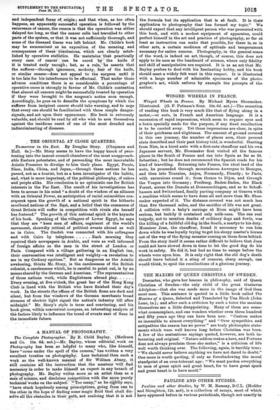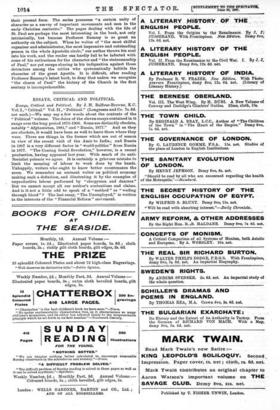their present form. The series possesses "a certain unity of
character as a survey of important movements and men in the early Christian centuries." The pages dealing with the life of St. Paul are perhaps the moat interesting in the book, not only intrinsically, but because Professor Ramsay is so great an authority on the subject. When he writes of "the most skilful organiser and administrator, the most impressive and outstanding person in the whole Apostolic circle," our author throws his soul into his work, and the reader can hardly fail to be infected with some of his enthusiasm for the character and "the statesmanship of Paul," nor yet escape sharing in his indignation against those detractors among the critics who systematically belittle the character of the great Apostle. It is difficult, after reading Professor Ramsay's latest book, to deny that unless we recognise "the charm of Paul" the history of the Church in the first century is incomprehensible.

















































 Previous page
Previous page